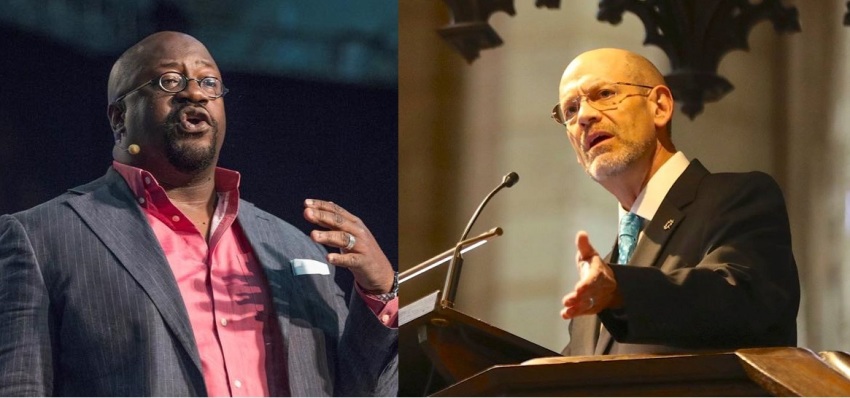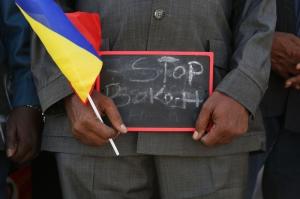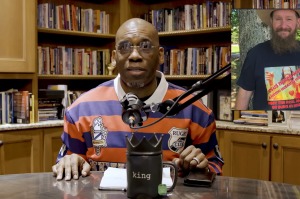Eric Mason calls James White ‘racist’ for calling black churches 'especially' theologically unsound

Bible expert Eric Mason has slammed fellow scholar James White for making what he argues is a “racist” claim that black churches are "especially" theologically unsound when compared to churches of other ethnic groups.
White, director of Alpha and Omega Ministries, in Phoenix, Arizona, refuted the claim and is pushing back against what he calls a "slanderous misuse" of his comments by Mason.
Mason, who is the founder and lead pastor of Epiphany Fellowship in Philadelphia, Pennsylvania, and author of four books: Manhood Restored, Beat God to the Punch, Unleashed, and most recently Woke Church, made his comments in response to a viral video clip which White said was taken from a July 26, 2016 broadcast of his “Dividing Line” show. He discussed the woke church, critical theory, identity politics, and the degradation of reason and communication in the church today.
“What struck me was there is in a sense — oh boy am I gonna get in trouble for this — in many churches of whatever ethnic mix, there is an anti-intellectualism, an anti-church history-ism, there is an anti-theology-ism, there is an anti-Bible translation, Bible transmission-ism, and it’s seen in the fact that it’s almost never addressed … but it’s especially true in black churches. It’s just the reality. The idea of sound doctrine, church history, there are so few,” White said in the clip posted by Mason on Facebook Tuesday.
Mason argued that White’s claim needed more research and suggested that the scholar’s assessment of black churches is incorrect and “racist.”
“Many of the black church preaching heroes aren’t authors or have their preaching catalog made readily available, but it’s too much out their (sic) to be ignorant and make racists comments like this. Yes this is racist!” he said in response to the clip.
“He (White) basically said black churches lack pulpit soundness over all. It sounds as if he is saying the black church is the most theologically unsound church in any vineyard of the kingdom,” Mason charged.
“I’ve ministered in both sectors. He must have never heard of the EK Bailey expository preaching conference, Williams Harris Waddles preaching conference, Dr Tony Evans church development conference from the 90’s and other conferences in the black spheres that have invested in the HUNGER for those who minister in these types of contexts. Of course there are pockets of unhealthy in the black church just like others,” he added while naming several other notable black preachers.
Prominent conservative civil rights activist and pastor of Cornerstone Baptist Church in Arlington, Texas, Dwight McKissic, also condemned White’s comments on Twitter as racist.
“John MaCarthur, printed a similar opinion in a book. James White has boldly stated his false, uninformed & racist thoughts concerning the Black Church. Disappointed, but not surprised. Eric Mason has a great rebuttal to this false characterization on his Facebook page,” McKissic said.
In a response on his show Thursday however, White explained that his comments were taken out of context.
“I debated a black Hebrew Israelite guy and the internet blew up. They started posting all sorts of videos about my death and burning in flames. I’m a demon…they’re calling me an Edomite. I mean these are black racists. This is what black Israelitism is all about is black racism which can’t exist anymore because in the insanity of our modern situation instead of defining racism in a meaningful fashion, a biblical fashion, a fashion that would specifically speak to the intentions of the heart, intention is no longer relevant. Intention doesn’t matter,” he said.
He noted that during the debate with the BHIs, they asked him why their former churches never discussed matters of church history and theology with them the way he did.
“The statement was, if you got all the answers, where were you when we were all up in the churches? And I took that to mean that these are former members of churches who have now become Black Hebrew Israelites. Where was I when they were looking for answers?” he said.
“They were like so, how come you’ve got all these answers and no one else has when we were in the churches? And my response was to say there is a tremendous amount of anti-intellectualism, anti-systematic theology, anti-church history in all churches today and then I said but ‘especially in the black church,'" he continued.
“Why did I say that? Because pretty much every black minister I have ministered with, talked with at conferences, talked with after conferences … has told me the exact same thing. There are entire books written by black minister authors about the enslavement of the black church to the current cultural norms. And all you gotta do is go James Cone, Jeremiah Wright, Creflo Dollar, T.D. Jakes, they seem a tad bit on the popular side,” White said.
“And if you went to churches influenced by those names, the biggest names…you’re not going to hear the answers to be able to see through the Black Hebrew Israelite diatribe," he added.
He argued that even though he recognizes that there are theologically sound black ministers "fighting the good fight," they are in the minority and some of them, whom he knows, have told him so.
“Basically what Eric Mason is telling me is, if you say what they’re saying, and that’s what this is all about. It’s who said it. I can’t say that. See, Eric Mason has bought identity politics, lock stock and barrel. He didn’t in the past,” White noted.
Aaron E. Lavender, senior pastor of Grace Baptist Church, and vice president of Carver Baptist Bible College and Theological Seminary, in Kansas City, Missouri, who also serves as vice president of church development for the Fundamental Baptist Fellowship Association, appears to agree with White in his 2016 book, Enduring Truth: Restoring Sound Theology and Relevance to African American Preaching.
He noted that while the problem of misrepresenting God’s word is not restricted to any particular race or culture, he was particularly concerned with how it is manifesting itself in black churches.
“As an African American, I am passionately concerned about the African American pulpit and whether God’s word is treated with the utmost integrity there. African American pulpits desperately need a revival of biblical fidelity and relevance in their approach to preaching,” he wrote in the introduction.
He further pointed to the “black hermeneutic” explained by Dale Andrews in Practical Theology for Black Churches as African American folk religion developed through generations for interpretation and application of the Bible as one of the main culprits behind the problem in black churches.
“This ‘black hermeneutic’ has wreaked havoc on African American churches because it manipulates the Bible’s intended meaning. The church in America today faces a crisis like no other time in its history. There is therefore a need for biblical accuracy and relevance to be restored to all pulpits, especially in African American ones. As we will see, at least three factors have precipitated the decline of biblical preaching among black churches: segregation, black liberation theology, and prosperity theology,” he wrote.
In a review of Lavender’s book, Eric Redmond, associate professor of Bible at Moody Bible Institute in Chicago, said Lavender’s “strong, conservative evangelical biblical and homiletic education and training … together with his denominational affinity, contributes to his assessment of the current state and needs of Black preaching.”
Among other criticisms, Redmond noted that he “found some parts of Lavender’s assessment of Black preaching to be overly-negative toward African Americans, while also portraying a ‘white’ entity as savior for them.”
While Lavender’s response to the problem of biblical fidelity in the black church are “not completely without merit,” said Redmond, he suggested a more tempered response.
“Some forms of African American preaching do lack sound doctrinal content, just as some forms of preaching from persons of any ethnicity lack sound doctrinal content. The expositor who wishes to improve his heralding of the gospel, with sensitivity to the stony road trod by African Americans, would do well to read Enduring Truth alongside of David Helm’s Expositional Preaching: How We Speak God’s Word Today (Wheaton, IL: Crossway, 2014) and Carl Ellis Jr.’s classic work, Free At Last? The Gospel in the African American Experience (Downers Grove, IL: InterVarsity Press). They will provide good balance to the practical and social concerns of Lavender’s thesis,” he wrote.



























